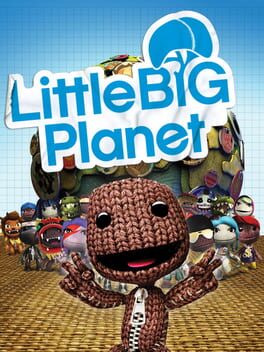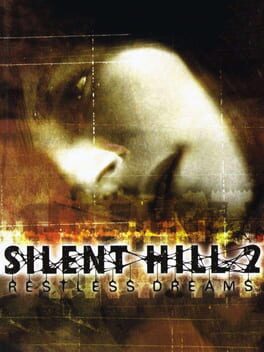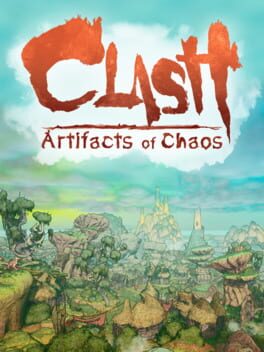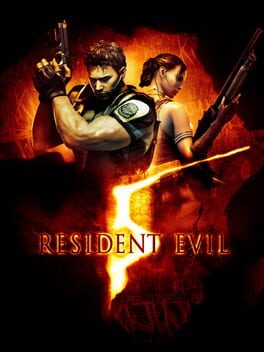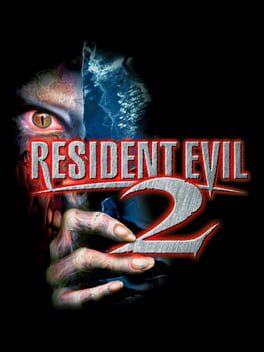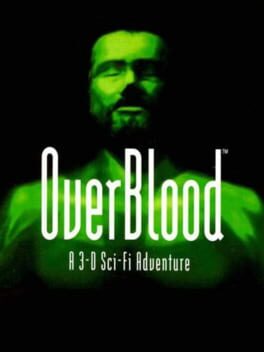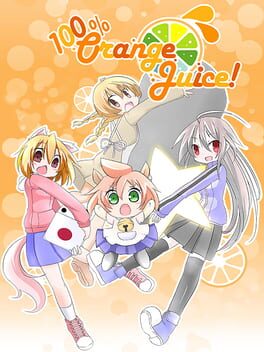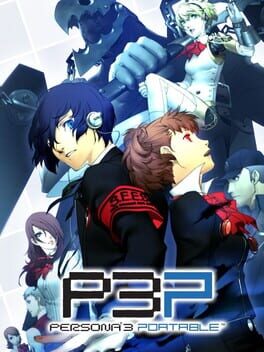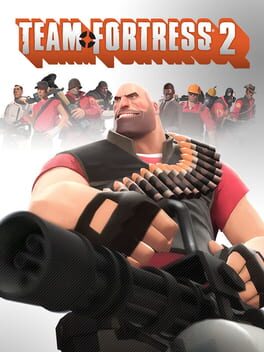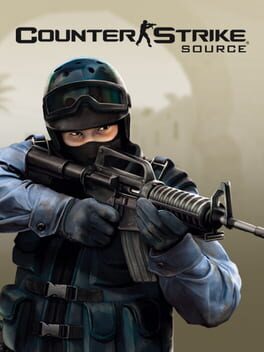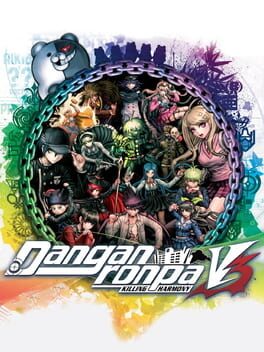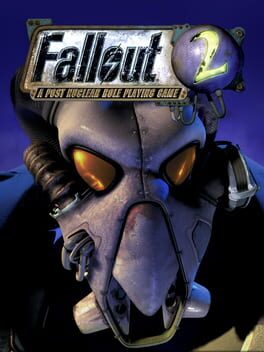RealHaloMan
2015
A lean take on a souls style game that makes it more repayable but also makes it less repayable at the same time since you're not really given much to do with builds. Also lacks basic features like quickly traveling between areas because of the clunky nature of the lanterns and chalice dungeons a little mid. Online also bad. Despite all that the game has a really nice tempo, some beautiful art direction, some of the best bosses in the series, and is just a lot of fun.
2008
Everything about this game works except the controls which haven't aged too well along with hard mode making Pyramid head a bit too tanky. Still if you're playing this game normally its one of the best narratives in a videogame and its unmatched by most in its atmosphere, in part to Akira Yamaoka's amazing work.
2009
This game would probably be 5 stars if not for the archaic mistakes that get corrected in future games, mostly, like the grinding for items and the ridiculous amount of types of stones. Luckily the game has a duping glitch to circumvent all that. Aside from one area it has really good level design, a cool art style, decent combat, and one of the more engaging narratives in the souls games, at least by the standards of the series, and some of my favorite NPCs. The poison swamp straight sucks and is possibly the worst mandatory area in the whole series.
Presentation - The game has a stunning art style that I can't really do justice with words, along with equally beautiful music. Its honestly one of the game's strong suites.
World Design - To talk about the open world briefly, its one of those worlds you appreciate more over time as you play the game; the interconnected of the world is just real neat and it feels rewarding exploring Zenozoik.
Writing - The game's narrative has some shockingly good high points and doesn't really have any big low points to hold it back. Probably one of the things I was shocked the most by.
Gameplay - There's a lot to talk about, but I'll be brief. As far as the good, the combat is really, really fun and sort of feels like a mix between a Souls-like and a fighting game. There's a lot of fighting styles to choose from and customizable moves, that once again make you feel good for exploring the world, however that is not to say I don't have critiques. For one, I find the camera to be the clunkiest part of this game; there's just way too many moments in fights, particularly in tight rooms, where it feels like I'm fighting the camera. I'm not sure what could've been done, but it did feel like a shortcoming. Secondly, I ran into a number of bugs where the repetitiveness of those bugs made me feel there was a lack of polish, the most offensive of these being a bug I found twice where in Pseudo's double kick special, he'd just start doing the kick indefinitely without stop. Notably, though not a gameplay bug, there was a moment in the final, final boss where Pseudo's head wildly stretched out twice. The experiences here are different from my friend who doesn't have nearly as many bugs.
Basically, if you want a bite sized game (like about 20 hours) that offers you a lot of ways to fight, is visually impressive, and can surprise you with its endearing writing, Clash: Artifacts of Chaos, is more than worth it. The polish in some areas and some shortcomings with the camera hold it back for me, but its still a great time.
World Design - To talk about the open world briefly, its one of those worlds you appreciate more over time as you play the game; the interconnected of the world is just real neat and it feels rewarding exploring Zenozoik.
Writing - The game's narrative has some shockingly good high points and doesn't really have any big low points to hold it back. Probably one of the things I was shocked the most by.
Gameplay - There's a lot to talk about, but I'll be brief. As far as the good, the combat is really, really fun and sort of feels like a mix between a Souls-like and a fighting game. There's a lot of fighting styles to choose from and customizable moves, that once again make you feel good for exploring the world, however that is not to say I don't have critiques. For one, I find the camera to be the clunkiest part of this game; there's just way too many moments in fights, particularly in tight rooms, where it feels like I'm fighting the camera. I'm not sure what could've been done, but it did feel like a shortcoming. Secondly, I ran into a number of bugs where the repetitiveness of those bugs made me feel there was a lack of polish, the most offensive of these being a bug I found twice where in Pseudo's double kick special, he'd just start doing the kick indefinitely without stop. Notably, though not a gameplay bug, there was a moment in the final, final boss where Pseudo's head wildly stretched out twice. The experiences here are different from my friend who doesn't have nearly as many bugs.
Basically, if you want a bite sized game (like about 20 hours) that offers you a lot of ways to fight, is visually impressive, and can surprise you with its endearing writing, Clash: Artifacts of Chaos, is more than worth it. The polish in some areas and some shortcomings with the camera hold it back for me, but its still a great time.
2009
1998
1997
This game has invisible quick time events, the WORST combat I've seen in any game, the game doesn't pause when you're trying to get an item mid combat, it always deselects the item when the combat is done, the inventory is filled with useless crap that comes up later, you gotta be pixel perfect to interact with items AND crouch sometimes, many including mandatory items are invisible and are only discovered by spamming the select button SOMETIMES REQUIRING crouching, the platforming is ass, and every room in the game looks the same with a few exceptions. The music is ok though and Pipo is funnny. I don't know why they murdered Razz's VA to get authentic death sounds though, I think that was too far.
2009
2023
tl;dr amazing story, decent mechanically, bad remaster and some dated elements
I'd like to preface this with saying I would Love to give this game 5 stars, but Persona 3 and this port in particular have some glaring issues. Before I go over that, let me quickly explain what Persona is for those not familiar. Basically, these games are JRPGs where you control a party of high schoolers who fight with these things called a Persona. Along the way you fight through dungeons, experience a life simulator with a high school focus, make bonds in the form of social links, and also experience a main narrative along the way. So, what are the problems you'll need to be wary of before I gush about the game?
-The game is a bad remaster. Most of the remastered stuff are AI generated or even worse demasters of the original game, like the compressed audio files used from the PSP release of P3P rather than the audio from the PS2 releases of Persona 3. The character sprites are good though.
-This game has a pretty flawed social link system, though if I'm being honest, they're flaws with the male route, which is the route the game will recommend you do on a first run. The issues you'll run into are all the female social links force you into romances, these romances make it harder to finish other female links, and you can't social link with your male party members. These are all really baffling choices that are corrected in female route, though do be warned that...
-The female protagonist can groom a child in a social link. Yes you can obviously avoid this social link, but it's still a huge problem and makes me wonder why they'd even write something like that at all.
-There's a scene that's not aged very well and comes off as transphobic. I would say that I can look past it cause it's an old game, but if anything this director's worst with LGBTQ topics only gets worse in his later games. It's not a huge deal breaker in isolation as it's just one scene, but it's there (in the male route).
-Tartarus, the game's dungeon crawling location, does overstay it's welcome a little at the last month of the game.
Okay, despite all these problems, I can still wholly recommend this game for those that want a time concussing RPG, which is good in all these other ways.
-Presentation:
The game uses a visual novel style as opposed to the use of more 3-D elements in the original game. I don't think this approach is better or worse, save for the game's lack of anime cutscenes (there are mods that can fix this and other issues with this game). As for what is there, the sprites all work pretty well and the game has a very strong sense of art direction. There's this sort of drearyness that manifests everywhere in contrast to the bright day to day elements from the school that really complements the games themes on death and inevitability. Along with the strong visuals, the game has a downright fantastic OST, with unique tracks in both the male and female route for your free time. There isn't much I can say about the OST is that it's some of the best I've heard and has been good enough for Atlus to milk the series via dancing games.
-Gameplay:
The game has a loop in the average day that goes like this: you wake up, some dialogue happens, you go to school, you got free time in your day you'll be using on social links 99% of the time, and then free time in the night mostly relegated to leveling up social skills like charm and confidence, though some days will be spent all on story. There are other stuff you can do at night though, such as a small number of social links only accessed at night or going to tartarus. I briefly touched on it earlier, but basically tartarus is where you get to your JRPG dungeon crawling. Basically, you climb up some number of floors, fight a few mini bosses, then stop when you reach the maximum highest floor at the time of the game you're in. While it is tedious at times, this system mostly works thanks to the persona fusing and leveling up, giving you goals on each visit. And while it is rarely forced on the player, you really should get to the highest possible floor in each month, otherwise you will probably be under leveled for main story bosses. As for the actual combat itself, it's fine. It ain't the most innovative thing, but it is satisfying when you find a strong party set up.
-Story/Writing
This will be hard to describe without major spoilers, but I'll do my best. To start, the game has a pretty robust cast. Some characters might be less interesting than others, but there are some really good ones. From the main cast, Yukari Takeba is one of the most human and realistic teenage girls I've seen out of an anime game like this. She's flawed, she can go overboard with her teasing, she can get emotional, but she still does her best to be a sweet person and comes off as very endearing. I won't go into detail on the sun social link, but it deserves high praise for getting me to tears when the game ended. Shinjiro's social link in the female route also deserves a shout out for being so damn adorable and having a pretty incredible romance. It's really a shame this is the last Persona game as of now where you can romance male cast members.
So, as far as the writing of the main scenario, I would say it's mostly strong with some blemishes here and there, mostly around the month right before the end of the game as I felt the game's exposition dump wasn't handled the best. Felt like the information needed to be spread out better. I won't go into details either but there is a pretty catastrophic revelation in both routes given a certain condition that undermines one of the game's major themes. As for said major themes, right from the get go this game makes it clear that it's going to have a focus on death and inevitability. Without spoiling anything, I would say the game takes an approach of it's better to take risks and always approach the inevitable instead of living in denial. Basically face your problems and the inevitable head on.
As for how all these themes in the narrative are written, by the time the game was over, I was put to tears and an emotional wreck. I can't say you will or will not be ready, but even if you've been spoiled on why you might end up like this, trust me it does not soften the blow by much. If anything it makes it worse. Of course this is a good bad thing and and a good bad thing the entire game builds up to, and ultimately makes this game one of my favorites. Basically what I am trying to say is the game has pretty strong writing despite the imperfections.
So, should you or should you not buy P3P? If you like RPGs that you can throw a ton of hours into, want a high school sim, and/or just want an interesting interpretation of the concepts of death and inevitability, then go ahead. Do mod the game too to correct some of the issues in the remaster if you can.
I'd like to preface this with saying I would Love to give this game 5 stars, but Persona 3 and this port in particular have some glaring issues. Before I go over that, let me quickly explain what Persona is for those not familiar. Basically, these games are JRPGs where you control a party of high schoolers who fight with these things called a Persona. Along the way you fight through dungeons, experience a life simulator with a high school focus, make bonds in the form of social links, and also experience a main narrative along the way. So, what are the problems you'll need to be wary of before I gush about the game?
-The game is a bad remaster. Most of the remastered stuff are AI generated or even worse demasters of the original game, like the compressed audio files used from the PSP release of P3P rather than the audio from the PS2 releases of Persona 3. The character sprites are good though.
-This game has a pretty flawed social link system, though if I'm being honest, they're flaws with the male route, which is the route the game will recommend you do on a first run. The issues you'll run into are all the female social links force you into romances, these romances make it harder to finish other female links, and you can't social link with your male party members. These are all really baffling choices that are corrected in female route, though do be warned that...
-The female protagonist can groom a child in a social link. Yes you can obviously avoid this social link, but it's still a huge problem and makes me wonder why they'd even write something like that at all.
-There's a scene that's not aged very well and comes off as transphobic. I would say that I can look past it cause it's an old game, but if anything this director's worst with LGBTQ topics only gets worse in his later games. It's not a huge deal breaker in isolation as it's just one scene, but it's there (in the male route).
-Tartarus, the game's dungeon crawling location, does overstay it's welcome a little at the last month of the game.
Okay, despite all these problems, I can still wholly recommend this game for those that want a time concussing RPG, which is good in all these other ways.
-Presentation:
The game uses a visual novel style as opposed to the use of more 3-D elements in the original game. I don't think this approach is better or worse, save for the game's lack of anime cutscenes (there are mods that can fix this and other issues with this game). As for what is there, the sprites all work pretty well and the game has a very strong sense of art direction. There's this sort of drearyness that manifests everywhere in contrast to the bright day to day elements from the school that really complements the games themes on death and inevitability. Along with the strong visuals, the game has a downright fantastic OST, with unique tracks in both the male and female route for your free time. There isn't much I can say about the OST is that it's some of the best I've heard and has been good enough for Atlus to milk the series via dancing games.
-Gameplay:
The game has a loop in the average day that goes like this: you wake up, some dialogue happens, you go to school, you got free time in your day you'll be using on social links 99% of the time, and then free time in the night mostly relegated to leveling up social skills like charm and confidence, though some days will be spent all on story. There are other stuff you can do at night though, such as a small number of social links only accessed at night or going to tartarus. I briefly touched on it earlier, but basically tartarus is where you get to your JRPG dungeon crawling. Basically, you climb up some number of floors, fight a few mini bosses, then stop when you reach the maximum highest floor at the time of the game you're in. While it is tedious at times, this system mostly works thanks to the persona fusing and leveling up, giving you goals on each visit. And while it is rarely forced on the player, you really should get to the highest possible floor in each month, otherwise you will probably be under leveled for main story bosses. As for the actual combat itself, it's fine. It ain't the most innovative thing, but it is satisfying when you find a strong party set up.
-Story/Writing
This will be hard to describe without major spoilers, but I'll do my best. To start, the game has a pretty robust cast. Some characters might be less interesting than others, but there are some really good ones. From the main cast, Yukari Takeba is one of the most human and realistic teenage girls I've seen out of an anime game like this. She's flawed, she can go overboard with her teasing, she can get emotional, but she still does her best to be a sweet person and comes off as very endearing. I won't go into detail on the sun social link, but it deserves high praise for getting me to tears when the game ended. Shinjiro's social link in the female route also deserves a shout out for being so damn adorable and having a pretty incredible romance. It's really a shame this is the last Persona game as of now where you can romance male cast members.
So, as far as the writing of the main scenario, I would say it's mostly strong with some blemishes here and there, mostly around the month right before the end of the game as I felt the game's exposition dump wasn't handled the best. Felt like the information needed to be spread out better. I won't go into details either but there is a pretty catastrophic revelation in both routes given a certain condition that undermines one of the game's major themes. As for said major themes, right from the get go this game makes it clear that it's going to have a focus on death and inevitability. Without spoiling anything, I would say the game takes an approach of it's better to take risks and always approach the inevitable instead of living in denial. Basically face your problems and the inevitable head on.
As for how all these themes in the narrative are written, by the time the game was over, I was put to tears and an emotional wreck. I can't say you will or will not be ready, but even if you've been spoiled on why you might end up like this, trust me it does not soften the blow by much. If anything it makes it worse. Of course this is a good bad thing and and a good bad thing the entire game builds up to, and ultimately makes this game one of my favorites. Basically what I am trying to say is the game has pretty strong writing despite the imperfections.
So, should you or should you not buy P3P? If you like RPGs that you can throw a ton of hours into, want a high school sim, and/or just want an interesting interpretation of the concepts of death and inevitability, then go ahead. Do mod the game too to correct some of the issues in the remaster if you can.
2019
Before I begin, here's a few disclaimers:
-I played the game on the PC version from the Xbox store; this version contained all the DLC Personas by default.
-I played it on normal, as I did with my first runs of P3P and P4G.
-For those that still don't have a clue, Katsura Hashino still sucks, and the only two gay characters in this game are part of a sexual assault scene. The problematic stuff isn't as common as it was in 4, but that one scene could be worse than any of the problematic elements of the other two games, which is especially jarring in a game with overall relatively progressive themes. If this makes you want to not buy the game altogether, keep that in mind.
TL;DR
Good game, way too easy, good writing at the start, okay writing towards the end, and Akechi's far and away the best character, while much of the cast suffers from being bland.
Introduction
Now, lets get a few other things out of the way. If this is your first Persona game, these games are essentially part dungeon crawling RPG and part life-sim with an overarching story. If you've played any of the Yakuza/LAD games, they're sort of similar in this aspect, with Persona's fundamental difference being its use of a calendar system making you have to time and plan your actions accordingly. Next, if you don't like it when things feel very "anime," this game is probably not for you. Basically, its got some power of friendship and all the other baggage; not necessarily a good or bad thing, but if its something you don't like, the game's probably not for you.
Gameplay
So, lets actually talk about how I felt about the game, starting with my feelings towards the life-sim aspects, which in this entry, might be at their best. The game gives you a ton to do, more so than the other entries, all with a world that you can walk around in an explore. Its got all the little details of past entries, like listening in to people talking, and more, plus more new minigames than the other games.
Not everything is sunshine and rainbows here though, and its in regards to one of the most important parts to the life-sim: social links, or in the case of Persona 5, confidants; these are basically friendship points you get each time you talk with someone that maxes out at the 10th rank. I don't think the game has many, or possibly any, outwardly "bad" confidants, but its also lacking in any confidants that I could really call fantastic; most of them just feel decidedly average, and I would probably lend a lot of that to this game's larger cast not having enough as far as interesting flaws and quirks. You don't have social links like 4's Ai Ebihara where you can fuck up the social link by enabling a shitty choice by the character, you're not getting social links like Shinjiro's from P3P's FEMC route where you see a softer side to a rough and gruff individual that tries to stay far away from you, even during the social link, and you don't get stuff like the dying young man from the same game that really encapsulate all the game's themes in a single social link. Much of them are just, generally good people have a few external conflicts that Joker helps solve by eventually changing someone's heart or just talking to your friend (we'll get into the changing heart stuff later).
The exception to all of this is Royal exclusive confidant Goro Akechi, and for a simple reason: he's the only character in the game that feels truly gray and muddied, at least in the entirety of his screen time. There's another character that's pretty gray, but they go from being a character that is liked to a character that is an enemy in much more of a coin flip, not that it was an undeserved coin flip, but one that had much less nuance around it compared to Akechi. Its weird including all this describing a confidant, which is supposed to be a side section, but you really won't be getting the most out of this character if you don't do his confidant. But to say all that shortly, his confidant plays very differently from the rest of the cast, and just makes him stand out in a sea of otherwise mostly bland relationships.
One last complaint for the confidants I have as far as writing, is how many adults your teenage protagonist can romance. They all come off as kind of creepy, with the worst offenders of these being the ability to romance your teacher; the other adults have issues for this, but that dynamic's certainly the most egregious of them. To those that say, just don't romance the adults, which I didn't, that is not the issue; when it is possible for your teacher character to romance their student, you're just making the perception of that character actively worse. It would've been so much better if these slots for romances were switched to characters like Ryuji and Yusuke, but I'd be beating a dead horse if I was to go on again about how Atlus thinks its better to have a teacher be a pedophile than it is for your protagonist to be in a gay relationship. Hopefully things get better in 6 with Hashino out of the picture.
My final note on confidants are the confidant abilities; basically at certain ranks of these, you will gain special perks that apply in palace's, in the life simulator, or both; basically all of them are stuff that make the game easier. Not inherently bad, but the easier part may be a problem.
Speaking of that problem, lets talk about the other half of the gameplay: the dungeon crawling RPG combat. Its very similar to the other Persona games, in that each combatant has weakness and resistances you need to learn to exploit, so you can eventually get your enemies into a knocked down state, made easier with "Baton Passes," which effectively let you chain attacks between different party members, amplifying their strength with each one you pull off temporarily. Once you do get everyone into a knocked down state, assuming you didn't just kill them all already, this game changes things up: instead of having just an all attack option for immediately ending the fight (most of the time), you can now negotiate with Persona's, asking them to either join your cause and adding them to your inventory of Persona's, give you money, or give you an item. Its a logical shift from the shuffle time mechanic of past games that feels much, much more rewarding, and is probably the most welcome change for the combat experience.
Now, as fun as the combat can be in this game, it has a very, very big problem: its too easy. That's not to say my previous experiences with the games weren't easy; I wouldn't call P3P or P4G difficult games, to be blunt, but there's just something about P5R that's even more ridiculous of a cakewalk, as there's just too many tools handed to you to make the game easy, the most offensive of these probably being the ability to unlock Persona's that are a higher level than what you are. It isn't that hard to stock pile a bunch of money, and if you just coerce some enemies into giving you a lot of cash, you'll be casually playing around with level 65 personas on your level 30 character. I understand why they wanted to try something like this, but the execution is just off and ruins any challenge this game has; this is exacerbated by the fact that the game isn't even really difficult using normal Personas. Its a tool that solves a problem that did not have to be solved.
Next, as far as the biggest change that this game had gameplay wise more than anything else, was the method to navigating dungeons. Gone are the procedurally generated dungeons of the previous two titles, and in are relatively linear palaces with numerous puzzles and enemies to navigate around, with their fair share of mini bosses. Now, while P4 did have some fixed dungeon floors, none of them are to the level of detail you'll find here. There's just a much more rewarding exploration experience that is just better suited to what P5's dungeons go for, as they're an exploration into an individual's psyche. Having that be a meticulously designed linear level rather than a procedurally generated set of floors is much better for that; the procedurally generated stuff is honestly best suited for P3 where it just makes sense that everything would be randomized. My only complaint to this method is that it probably makes NG+ a worse experience, as you won't really be surprised by anything.
The last thing I want to cover gameplay wise is mementos; for those of you that played P3, its just Tartarus, except you drive around, and there's no mini bosses.... kinda. You get requests to deal with mini bosses in the area over the course of the game, but these are all optional. Navigating around mementos is much faster than Tartarus as well despite the amount of floors, as once again, you can just drive around and evade enemies. Its overall very, very okay, but it does pale in comparison to the game's palaces, as the environments in this area in the game are very, very similar from start to finish.
Presentation
I'll be brief here: the sprite work is beautiful, the music is as great as always, and the game avoids aging poorly with its approach to anime stylized graphics. There are a few funky stuff with the models, mainly with how jarring the gap between some character's eyes can be, but the game usually doesn't draw too much attention to that stuff. I don't think its my favorite Persona soundtrack, but its got its moments for sure. The performances from the entire voice cast is also very, very good, and I have zero complaints from them. Ryuji's performance is surprisingly up there as far as my favorites from this game. I think Ann has some really good moments early on, as Erika Harlacher just has this unmatched ability to make her characters emotionally explode, but most of her shining moments are in the early game, unfortunately. DC Douglas also deserves a shoutout for his performance as Kamoshida; he is the first villain in the game, and sets a high standard that I don't think the game ever manages to reach again, both from a performance and narrative standpoint.
Characters
I touched on this a little already with the confidants, though those interactions aren't the end all be all for this game's characterizations, though they have similar issues. Most party members follow this pattern: when they're introduced, they have some kind of interesting flaw or quirk, or just element to their character or dynamic to someone else that you want to see more of, but over the course of the game, those elements fade away and most of their screen times feels dedicated to saying how awesome Joker (the protagonist) is. Stuff like Ryuji and Ann's brother-sister dynamic and Makoto's empathy and care towards Futaba in the latter's early appearances stand out to me, and are all things get lost as the characters stick around. Despite this, I wouldn't call any of these members bad characters, even with Haru being a little bland and under characterized, with a single exception: Morgana. He doesn't have the same problem where he fades into the background, but instead has the issue of just being really, really annoying; if I was to make a comparison, he's a combination of the worst parts of Rise and Teddie, except he's not flirting with the protagonist and is instead flirting with Ann, while lacking any of the things that made Teddie funny, that being his disconnect from humanity, which Morgana has none of. I would not even mind the character's attitude that much if the first scene where we see Morgana being horny is over a cognitive version of Ann that represent's how an adult, Kamoshida, wishes to exploit the character; there is a time and place for the childish character fawns over woman in bikini anime scenes, and that was the absolute worst timing for that, with nothing following that incident repairing the character. He's just constantly annoying, and is a center to one of the worse Persona angst arcs, though me going into details in that heads into mid-game spoiler territory.
There are two other characters that follow very different dynamics from the other members of the Phantom Thieves, though calling them members would be a stretch. I've already touched on most of what needs to be said on Akechi, and touching any further here would probably go into spoiler territory, so just trust me when I say he is far and away the best member of the cast. As for Yoshizawa, aka, the game's spin-off girl, I was pleasantly surprised by some of the character's later developments. She isn't much of interest till we reach the Royal parts of the game, but has some neat elements there that would land me into spoiler territory. I don't think its as good as Akechi or anything, nor do I like it as much as my other favorite member of the party, Ryuji, but its definitely a fine change of pace.
Story
The other half of the writing that needs to be covered is the story; I will be limited here as I want to keep spoilers to a minimum, but I'll explain the premise of the game. Basically, Joker's went through some false charges and sent out from his home to live in the Shibuya area for about a year, taking residence in the attic of a cafe, and during his time in Shibuya, awakens to the power of Persona's and the ability to navigate these things called Palaces, a representation of the most distorted parts of one's mind. Throughout the game, he makes friends with others that awaken to these same powers, constantly using these palaces to attack authority figures and expose their crimes to the public in an act of rebellion and justice. The whole theme of rebellion is ever present from this game from beginning to end with little subtlety, not that a lack of it is inherently a bad thing, but its worth pointing out; even the start of every confidant reminds you that this is a game about rebelling against the power structures of society. I think this theme's overall executed well, aside from a few blemishes here and there with a character expressing that they'll become a cop once you finish their confidant. Still, there isn't anything as egregiously self-contradicting here like the previous entry, and most of the time the game does a good job of making you feel invested in the struggles of the Phantom Thieves and showing you both the highest and lowest points of the acts of rebellion.
This isn't really a primary theme, but this game definitely has a power of friendship kinda theme; I know, I know, those words have a pretty poor connotation, but its somehow handled with a decent amount of elegance in one area of the game in particular. I won't go into details, but if you're familiar with P4's antagonist and their relationship to the protagonist, something similar takes place in this game that makes much, much more sense and comes off as genuinely strong.
Lastly, I do want to say that after what I felt was the game's best palace (the one where you get Akechi as a party member), there is somewhat of a drop off in overall writing quality. Not so much in regards to the events immediately after the conclusion of this palace, as like I've said, its a part of the game I really liked, but more so the time that passed a few weeks after this and the events of the next palace outside a certain incident I really enjoyed. The rag tag rebellious group taking on authority figures stuff kinda gets lost in an escalation of conflict, though I don't think any of this is nearly as dreadful as what happens in P4G after you get past one of the last forays into the TV world, as a frame of reference.
Concluding Thoughts
This game's good, and absolutely incredible at some points, but unfortunately bland in others when it comes to a lot of its cast save for a few exceptions like Akechi, and is way, way too easy. I only have this half a star above P4G, but the game was very, very close to being 4 stars instead and the half a star difference doesn't really represent how much more I overall enjoyed this entry.
-I played the game on the PC version from the Xbox store; this version contained all the DLC Personas by default.
-I played it on normal, as I did with my first runs of P3P and P4G.
-For those that still don't have a clue, Katsura Hashino still sucks, and the only two gay characters in this game are part of a sexual assault scene. The problematic stuff isn't as common as it was in 4, but that one scene could be worse than any of the problematic elements of the other two games, which is especially jarring in a game with overall relatively progressive themes. If this makes you want to not buy the game altogether, keep that in mind.
TL;DR
Good game, way too easy, good writing at the start, okay writing towards the end, and Akechi's far and away the best character, while much of the cast suffers from being bland.
Introduction
Now, lets get a few other things out of the way. If this is your first Persona game, these games are essentially part dungeon crawling RPG and part life-sim with an overarching story. If you've played any of the Yakuza/LAD games, they're sort of similar in this aspect, with Persona's fundamental difference being its use of a calendar system making you have to time and plan your actions accordingly. Next, if you don't like it when things feel very "anime," this game is probably not for you. Basically, its got some power of friendship and all the other baggage; not necessarily a good or bad thing, but if its something you don't like, the game's probably not for you.
Gameplay
So, lets actually talk about how I felt about the game, starting with my feelings towards the life-sim aspects, which in this entry, might be at their best. The game gives you a ton to do, more so than the other entries, all with a world that you can walk around in an explore. Its got all the little details of past entries, like listening in to people talking, and more, plus more new minigames than the other games.
Not everything is sunshine and rainbows here though, and its in regards to one of the most important parts to the life-sim: social links, or in the case of Persona 5, confidants; these are basically friendship points you get each time you talk with someone that maxes out at the 10th rank. I don't think the game has many, or possibly any, outwardly "bad" confidants, but its also lacking in any confidants that I could really call fantastic; most of them just feel decidedly average, and I would probably lend a lot of that to this game's larger cast not having enough as far as interesting flaws and quirks. You don't have social links like 4's Ai Ebihara where you can fuck up the social link by enabling a shitty choice by the character, you're not getting social links like Shinjiro's from P3P's FEMC route where you see a softer side to a rough and gruff individual that tries to stay far away from you, even during the social link, and you don't get stuff like the dying young man from the same game that really encapsulate all the game's themes in a single social link. Much of them are just, generally good people have a few external conflicts that Joker helps solve by eventually changing someone's heart or just talking to your friend (we'll get into the changing heart stuff later).
The exception to all of this is Royal exclusive confidant Goro Akechi, and for a simple reason: he's the only character in the game that feels truly gray and muddied, at least in the entirety of his screen time. There's another character that's pretty gray, but they go from being a character that is liked to a character that is an enemy in much more of a coin flip, not that it was an undeserved coin flip, but one that had much less nuance around it compared to Akechi. Its weird including all this describing a confidant, which is supposed to be a side section, but you really won't be getting the most out of this character if you don't do his confidant. But to say all that shortly, his confidant plays very differently from the rest of the cast, and just makes him stand out in a sea of otherwise mostly bland relationships.
One last complaint for the confidants I have as far as writing, is how many adults your teenage protagonist can romance. They all come off as kind of creepy, with the worst offenders of these being the ability to romance your teacher; the other adults have issues for this, but that dynamic's certainly the most egregious of them. To those that say, just don't romance the adults, which I didn't, that is not the issue; when it is possible for your teacher character to romance their student, you're just making the perception of that character actively worse. It would've been so much better if these slots for romances were switched to characters like Ryuji and Yusuke, but I'd be beating a dead horse if I was to go on again about how Atlus thinks its better to have a teacher be a pedophile than it is for your protagonist to be in a gay relationship. Hopefully things get better in 6 with Hashino out of the picture.
My final note on confidants are the confidant abilities; basically at certain ranks of these, you will gain special perks that apply in palace's, in the life simulator, or both; basically all of them are stuff that make the game easier. Not inherently bad, but the easier part may be a problem.
Speaking of that problem, lets talk about the other half of the gameplay: the dungeon crawling RPG combat. Its very similar to the other Persona games, in that each combatant has weakness and resistances you need to learn to exploit, so you can eventually get your enemies into a knocked down state, made easier with "Baton Passes," which effectively let you chain attacks between different party members, amplifying their strength with each one you pull off temporarily. Once you do get everyone into a knocked down state, assuming you didn't just kill them all already, this game changes things up: instead of having just an all attack option for immediately ending the fight (most of the time), you can now negotiate with Persona's, asking them to either join your cause and adding them to your inventory of Persona's, give you money, or give you an item. Its a logical shift from the shuffle time mechanic of past games that feels much, much more rewarding, and is probably the most welcome change for the combat experience.
Now, as fun as the combat can be in this game, it has a very, very big problem: its too easy. That's not to say my previous experiences with the games weren't easy; I wouldn't call P3P or P4G difficult games, to be blunt, but there's just something about P5R that's even more ridiculous of a cakewalk, as there's just too many tools handed to you to make the game easy, the most offensive of these probably being the ability to unlock Persona's that are a higher level than what you are. It isn't that hard to stock pile a bunch of money, and if you just coerce some enemies into giving you a lot of cash, you'll be casually playing around with level 65 personas on your level 30 character. I understand why they wanted to try something like this, but the execution is just off and ruins any challenge this game has; this is exacerbated by the fact that the game isn't even really difficult using normal Personas. Its a tool that solves a problem that did not have to be solved.
Next, as far as the biggest change that this game had gameplay wise more than anything else, was the method to navigating dungeons. Gone are the procedurally generated dungeons of the previous two titles, and in are relatively linear palaces with numerous puzzles and enemies to navigate around, with their fair share of mini bosses. Now, while P4 did have some fixed dungeon floors, none of them are to the level of detail you'll find here. There's just a much more rewarding exploration experience that is just better suited to what P5's dungeons go for, as they're an exploration into an individual's psyche. Having that be a meticulously designed linear level rather than a procedurally generated set of floors is much better for that; the procedurally generated stuff is honestly best suited for P3 where it just makes sense that everything would be randomized. My only complaint to this method is that it probably makes NG+ a worse experience, as you won't really be surprised by anything.
The last thing I want to cover gameplay wise is mementos; for those of you that played P3, its just Tartarus, except you drive around, and there's no mini bosses.... kinda. You get requests to deal with mini bosses in the area over the course of the game, but these are all optional. Navigating around mementos is much faster than Tartarus as well despite the amount of floors, as once again, you can just drive around and evade enemies. Its overall very, very okay, but it does pale in comparison to the game's palaces, as the environments in this area in the game are very, very similar from start to finish.
Presentation
I'll be brief here: the sprite work is beautiful, the music is as great as always, and the game avoids aging poorly with its approach to anime stylized graphics. There are a few funky stuff with the models, mainly with how jarring the gap between some character's eyes can be, but the game usually doesn't draw too much attention to that stuff. I don't think its my favorite Persona soundtrack, but its got its moments for sure. The performances from the entire voice cast is also very, very good, and I have zero complaints from them. Ryuji's performance is surprisingly up there as far as my favorites from this game. I think Ann has some really good moments early on, as Erika Harlacher just has this unmatched ability to make her characters emotionally explode, but most of her shining moments are in the early game, unfortunately. DC Douglas also deserves a shoutout for his performance as Kamoshida; he is the first villain in the game, and sets a high standard that I don't think the game ever manages to reach again, both from a performance and narrative standpoint.
Characters
I touched on this a little already with the confidants, though those interactions aren't the end all be all for this game's characterizations, though they have similar issues. Most party members follow this pattern: when they're introduced, they have some kind of interesting flaw or quirk, or just element to their character or dynamic to someone else that you want to see more of, but over the course of the game, those elements fade away and most of their screen times feels dedicated to saying how awesome Joker (the protagonist) is. Stuff like Ryuji and Ann's brother-sister dynamic and Makoto's empathy and care towards Futaba in the latter's early appearances stand out to me, and are all things get lost as the characters stick around. Despite this, I wouldn't call any of these members bad characters, even with Haru being a little bland and under characterized, with a single exception: Morgana. He doesn't have the same problem where he fades into the background, but instead has the issue of just being really, really annoying; if I was to make a comparison, he's a combination of the worst parts of Rise and Teddie, except he's not flirting with the protagonist and is instead flirting with Ann, while lacking any of the things that made Teddie funny, that being his disconnect from humanity, which Morgana has none of. I would not even mind the character's attitude that much if the first scene where we see Morgana being horny is over a cognitive version of Ann that represent's how an adult, Kamoshida, wishes to exploit the character; there is a time and place for the childish character fawns over woman in bikini anime scenes, and that was the absolute worst timing for that, with nothing following that incident repairing the character. He's just constantly annoying, and is a center to one of the worse Persona angst arcs, though me going into details in that heads into mid-game spoiler territory.
There are two other characters that follow very different dynamics from the other members of the Phantom Thieves, though calling them members would be a stretch. I've already touched on most of what needs to be said on Akechi, and touching any further here would probably go into spoiler territory, so just trust me when I say he is far and away the best member of the cast. As for Yoshizawa, aka, the game's spin-off girl, I was pleasantly surprised by some of the character's later developments. She isn't much of interest till we reach the Royal parts of the game, but has some neat elements there that would land me into spoiler territory. I don't think its as good as Akechi or anything, nor do I like it as much as my other favorite member of the party, Ryuji, but its definitely a fine change of pace.
Story
The other half of the writing that needs to be covered is the story; I will be limited here as I want to keep spoilers to a minimum, but I'll explain the premise of the game. Basically, Joker's went through some false charges and sent out from his home to live in the Shibuya area for about a year, taking residence in the attic of a cafe, and during his time in Shibuya, awakens to the power of Persona's and the ability to navigate these things called Palaces, a representation of the most distorted parts of one's mind. Throughout the game, he makes friends with others that awaken to these same powers, constantly using these palaces to attack authority figures and expose their crimes to the public in an act of rebellion and justice. The whole theme of rebellion is ever present from this game from beginning to end with little subtlety, not that a lack of it is inherently a bad thing, but its worth pointing out; even the start of every confidant reminds you that this is a game about rebelling against the power structures of society. I think this theme's overall executed well, aside from a few blemishes here and there with a character expressing that they'll become a cop once you finish their confidant. Still, there isn't anything as egregiously self-contradicting here like the previous entry, and most of the time the game does a good job of making you feel invested in the struggles of the Phantom Thieves and showing you both the highest and lowest points of the acts of rebellion.
This isn't really a primary theme, but this game definitely has a power of friendship kinda theme; I know, I know, those words have a pretty poor connotation, but its somehow handled with a decent amount of elegance in one area of the game in particular. I won't go into details, but if you're familiar with P4's antagonist and their relationship to the protagonist, something similar takes place in this game that makes much, much more sense and comes off as genuinely strong.
Lastly, I do want to say that after what I felt was the game's best palace (the one where you get Akechi as a party member), there is somewhat of a drop off in overall writing quality. Not so much in regards to the events immediately after the conclusion of this palace, as like I've said, its a part of the game I really liked, but more so the time that passed a few weeks after this and the events of the next palace outside a certain incident I really enjoyed. The rag tag rebellious group taking on authority figures stuff kinda gets lost in an escalation of conflict, though I don't think any of this is nearly as dreadful as what happens in P4G after you get past one of the last forays into the TV world, as a frame of reference.
Concluding Thoughts
This game's good, and absolutely incredible at some points, but unfortunately bland in others when it comes to a lot of its cast save for a few exceptions like Akechi, and is way, way too easy. I only have this half a star above P4G, but the game was very, very close to being 4 stars instead and the half a star difference doesn't really represent how much more I overall enjoyed this entry.
2007
This is the only way I'll play counter strike aside from the funny one with zombies and micro transactions. As for why, it's incredibly laid back and feels like a relic of a bygone era. You'll probably wanna insta mute chat since it's a valve game and the player base is probably gonna be really racist or some other ism.
I'm not sure there was a better way to end the series and never has a game got me so emotionally invested. This game feels like a depression simulator at times and still manages to throw in the same humor from the previous games while having in my opinion the most robust cast. This is also the only game in the series where I can whole heartedly say the ending was good, as controversial as a take that is. It's definitely the sorta ending that only ages better as time goes on.
1998

